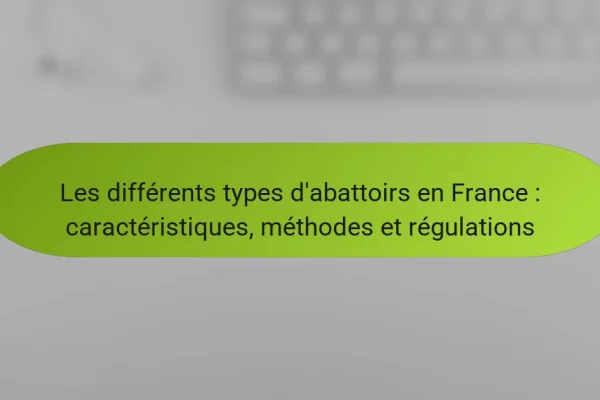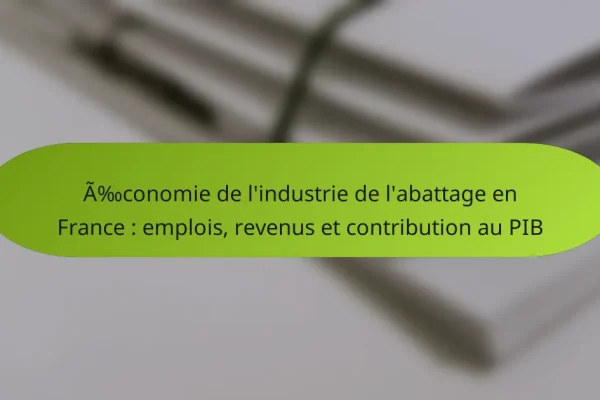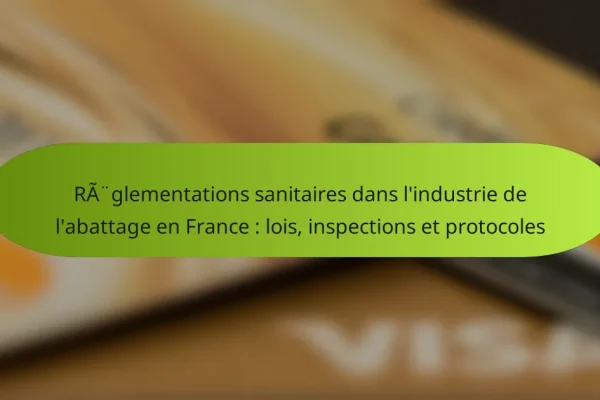
Les différents types d’abattoirs en France : caractéristiques, méthodes et régulations
The article focuses on the role of health authorities in regulating slaughterhouses, ensuring food safety and animal welfare. It details how these authorities establish public health standards, conduct regular inspections, and enforce compliance with hygiene and slaughter conditions. Key challenges faced by health authorities include maintaining food safety standards, ensuring product traceability, and addressing resource…





